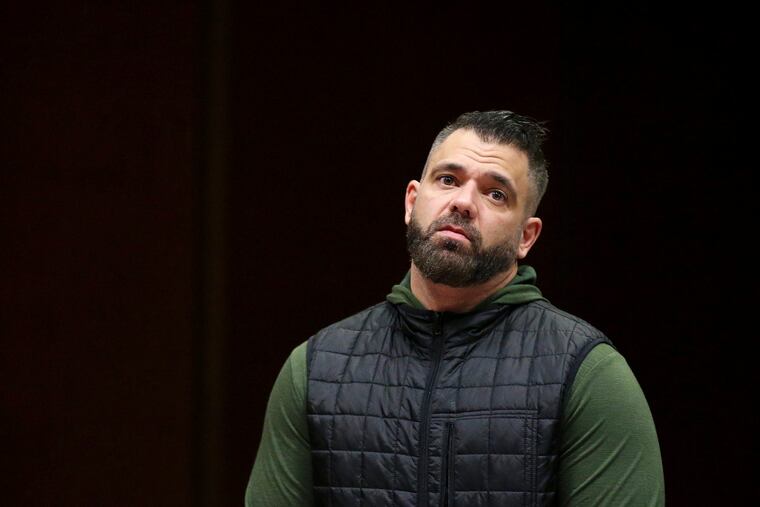More charges for N.J. man in GoFundMe scam involving homeless veteran Johnny Bobbitt
Mark D’Amico, 40, faces additional charges of wire fraud and money laundering.

Mark D’Amico, the South Jersey man accused of masterminding the GoFundMe scam that raised more than $400,000 ostensibly for homeless veteran Johnny Bobbitt Jr., was indicted by a federal grand jury in Camden on Wednesday with multiple fraud and money laundering charges.
D’Amico, 40, formerly of Bordentown, pleaded guilty in December to a state felony charge of misapplication of entrusted property, for which he faces five years in prison but could be out after seven months. He pleaded not guilty in October when he was first charged in federal court with one count each of conspiring to commit wire fraud and conspiring to commit money laundering, which combined carry a maximum of 30 years behind bars.
D’Amico allegedly conspired with his former girlfriend, Katelyn McClure, to create the GoFundMe account with a fake feel-good story in 2017, about how the homeless Bobbitt gave his last $20 to McClure when she ran out of gas on the Girard Avenue exit ramp of I-95 in Philadelphia.
The phony plea, supposedly to help Bobbitt, a Marine veteran, went viral and bamboozled 14,000 donors. Bobbitt got some money but D’Amico and McClure went on a spending spree with the rest.
After the scam was exposed, GoFundMe said it would reimburse all the donors. D’Amico, McClure, and Bobbitt are supposed to repay the crowdfunding company.
McClure and Bobbitt pleaded guilty last March in federal court to conspiracy charges and are awaiting sentencing. McClure also pleaded guilty in Superior Court to theft by deception. As part of her agreement, she faced a potential four years in state prison. Bobbitt pleaded guilty to conspiracy to commit theft by deception and was sentenced to five years’ probation and ordered to enroll in long-term live-in drug rehabilitation
D’Amico now faces four counts of wire fraud and 10 counts of money laundering on top of the two conspiracy charges, said U.S. Attorney Craig Carpenito in a news release.
The maximum penalty for wire fraud conspiracy and wire fraud is 20 years in prison, Carpenito said. The maximum penalty for conspiracy to commit money laundering and on five of the money laundering counts is 10 years. The maximum penalty on the five remaining money laundering counts is 20 years, he added.
Mark G. Davis, D’Amico’s lawyer, could not be reached for comment Wednesday night.
As part of D’Amico’s agreement to plead guilty in December in state court to the single charge of misapplication of entrusted funds, state prosecutors dropped conspiracy, theft, and other charges. Under the plea deal, D’Amico could apply to an intensive-probation program after serving seven months in custody.